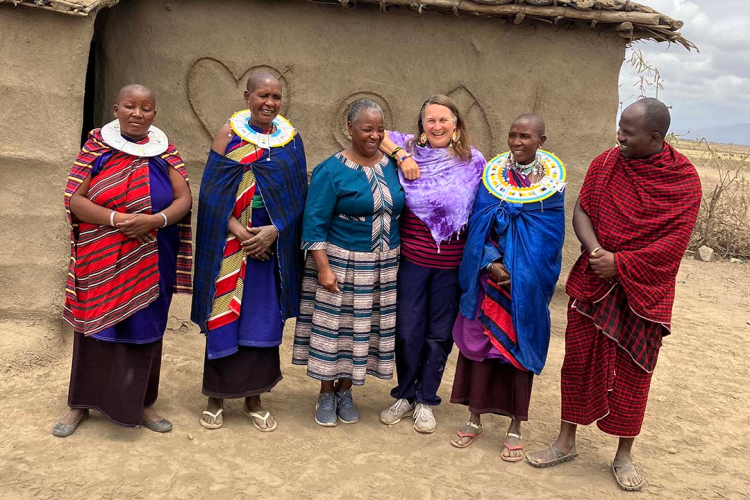An international research collaboration led by a University of Saskatchewan (USask) water researcher is exploring the intersection of water, environment, social and cultural systems with health for women and mothers in communities around the world.
Dr. Corinne Schuster-Wallace (PhD), a professor in USask's Department of Geography and Planning and the executive director of the Global Institute for Water Security (GIWS), is the principal investigator (PI) on a project exploring the connections between physical and social environments and maternal well-being in communities in Africa and at home in Saskatchewan.
The five-year project recently received more than $1.3 million from the Canadian Institutes of Health Research (CIHR) and aims to create a tool which can be used to evaluate the maternal well-being of Indigenous women in rural communities.
"Livelihood, housing, food security, safety you can't get there without thinking about water and local water security," Schuster-Wallace said.
The research team will develop a measurement tool that will include a series of indicators and criteria developed over the course of the research project. The indicators of that measurement tool will be focused on areas of maternal well-being in communities, including water security, food security, social networks, agency and health care.
The goal is that the tool can be used universally by communities or by local governments and organizations to assess maternal well-being. By using indicators developed within communities, Schuster-Wallace and her team hope their tool can help show communities where there are needs affecting maternal well-being that can be filled to improve community health and well-being, especially for women, girls and their babies.
Schuster-Wallace highlighted the importance of water, sanitation and hygiene (WASH) for human health, as highlighted by the World Health Organization (WHO). By focusing the idea of WASH from a maternal health perspective, Schuster-Wallace said issues around community water security become much more evident.
As an example, Schuster-Wallace pointed to the idea of women and girls having to fetch water for their households. If that water is further away, or if there are conflicts over accessing fresh water, that is a detriment to their health that can be measured. Limited access to water can also mean less food can be cooked safely, which is another indicator for health and well-being.
"It's about water and nutrition, water and sanitation, water and livelihoods," she said. "We started looking at maternal health outside of the health care system and realized there's a broader context of maternal well-being."

The team in Tanzania visiting the Maasai community that is participating in the study. (Photo: Submitted)
The research will be undertaken with Indigenous communities in both East Africa and Canada. Schuster-Wallace said the researchers wanted to make sure they were "nesting (the research) from the inside out," by centring the experiences and knowledge from women and mothers in their target communities and using those to build the framework for this tool.
"It's about the social and environmental determinants of health, but it's about those determinants from women's perspectives, and then from men's perspectives, the community perspective and then from the health professional perspective," she said. "We're hoping to that we'll be able to find core similarities to create a flexible tool others can use."
Schuster-Wallace's Saskatchewan collaborators on the project include co-PI Dr. Pammla Petrucka (PhD) and Dr. Jodie Bigalky (PhD) with USask's College of Nursing, Beverly Wise, the health director for Mistawasis Nêhiyawak First Nation, and RESOLVE SK. Schuster-Wallace is also working with the Health Sciences North Research Institute and co-PIs throughout eastern Africa from Moi University in Kenya, Kilimanjaro Christian Medical University in Tanzania, Makerere University in Uganda, and Uganda Christian University.
"It's an international team effort," Schuster-Wallace said. "We'll be able to not only identify if women and girls in each community have good maternal well-being, but if it isn't good, where are the priority places for intervention?"













